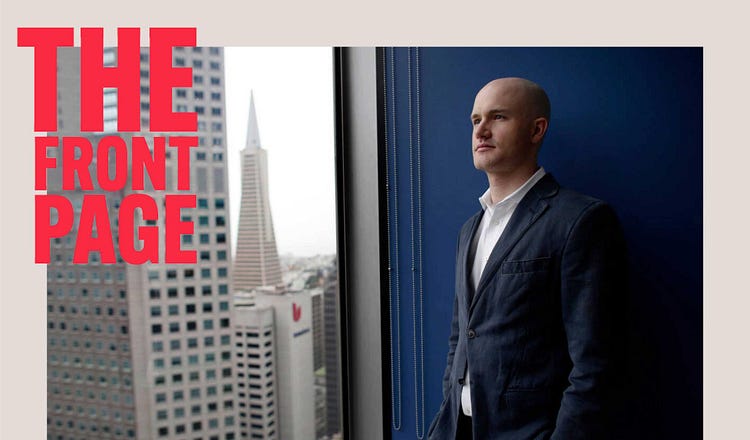The Tech Bros Who Banned Politics from the Office. Plus. . .

The NYT vs. Joe Biden. Frank Bruni on why everyone became a complainer. Columbia tries—and fails—to close the encampment. New merch! And more.
436
Welcome to The Front Page. Today from The Free Press: Frank Bruni on why everyone is complaining. Columbia tries—and fails—to close its encampment. Our immigration debate on Honestly. New Free Press merch. And more.
But first, for our lead story, Michal Lev-Ram talks to the prophetic tech bros who kept politics out of their offices.
Earlier this month, G…
Start Your Free Trial to Unlock This Story
Support our journalism and unlock all of our investigative stories and provocative commentary about the world as it actually is. Get your first 7 days free.
$8.33/month
Billed as $100 yearly
$10/month
Billed as $10 monthly
Already have an account?
Sign In


